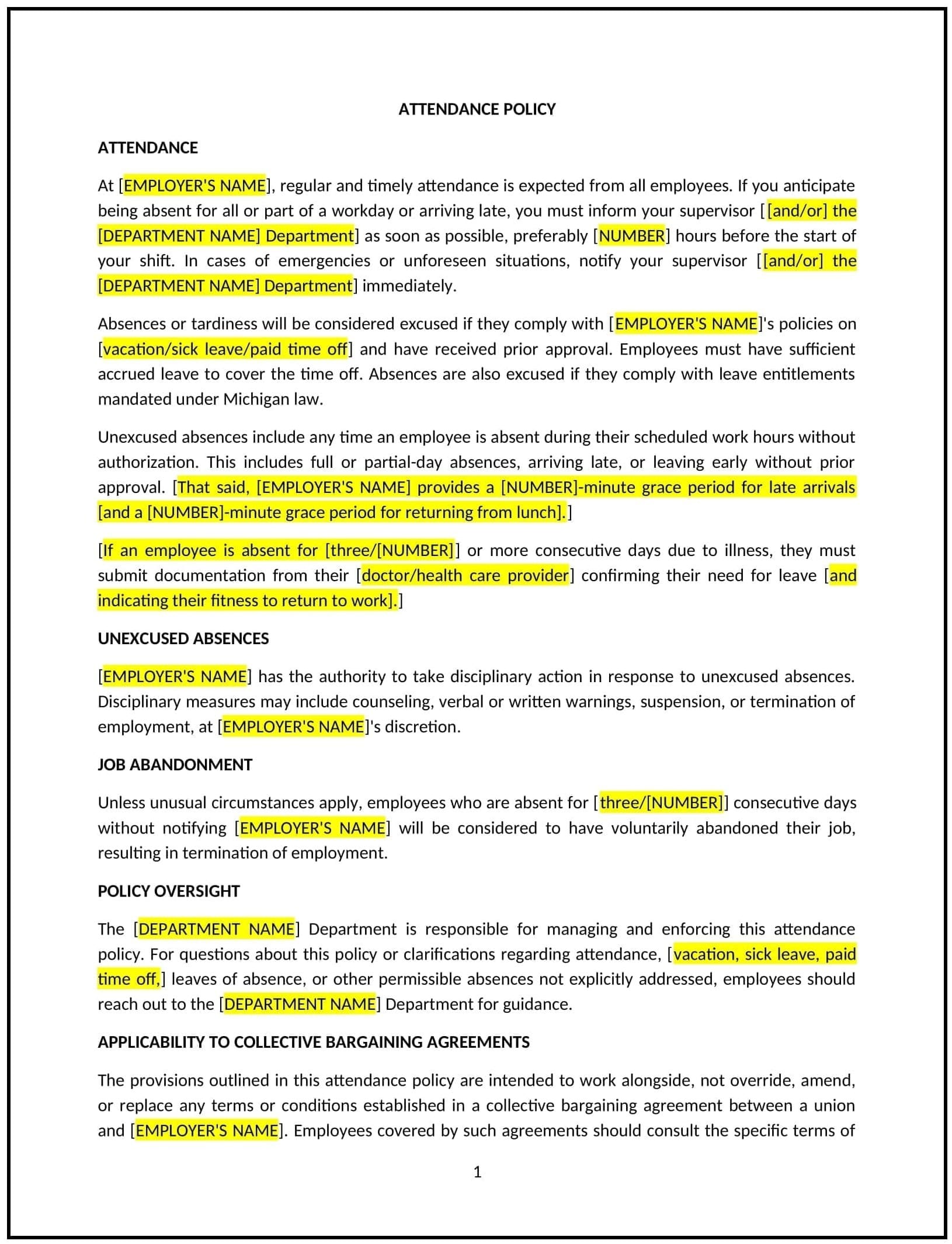Got contracts to review? While you're here for policies, let Cobrief make contract review effortless—start your free review now.

Customize this template for free
Attendance policy (Michigan)
An attendance policy provides Michigan businesses with guidelines to manage employee attendance, including expectations for punctuality, leave, and the handling of absences. This policy ensures that employees understand their responsibilities regarding attendance, while balancing the needs of the business with employee well-being.
By adopting this policy, businesses can maintain smooth operations, promote accountability, and ensure fairness in handling attendance-related matters.
How to use this attendance policy (Michigan)
- Define attendance expectations: Specify the expected work hours, attendance standards, and the importance of punctuality and regular attendance.
- Address acceptable reasons for absence: Clearly outline acceptable reasons for absence, such as illness, family emergencies, or personal leave, and the process for notifying management in advance.
- Set notification procedures: Provide clear instructions for how employees should notify their supervisor about an absence, including how much notice is required and the acceptable communication methods.
- Include paid and unpaid leave: Detail any paid leave options (e.g., vacation, sick days) and any unpaid leave policies, such as leave for personal reasons or extended illness.
- Specify consequences for excessive absences: Outline the steps that will be taken if an employee exceeds a certain number of unexcused absences, including potential disciplinary actions.
- Address tardiness: Establish guidelines for tardiness, including what constitutes excessive tardiness and how it will be handled.
- Include medical documentation requirements: Specify if and when medical documentation is required for extended or frequent absences.
Benefits of using this attendance policy (Michigan)
This policy provides several key benefits for Michigan businesses:
- Promotes accountability: Employees are held responsible for maintaining regular attendance, which helps maintain business operations and team productivity.
- Reduces absenteeism: Clearly outlining attendance expectations and consequences for excessive absences encourages employees to manage their time effectively.
- Supports fairness: Ensures that all employees are held to the same standards and provides a consistent approach to attendance management.
- Enhances communication: Encourages employees to communicate absences and tardiness promptly, helping managers plan for coverage and minimize disruptions.
- Aligns with legal requirements: Complies with Michigan state laws regarding employee rights and leave entitlements.
Tips for using this attendance policy (Michigan)
- Communicate the policy: Ensure all employees understand the attendance expectations by sharing the policy during onboarding and through ongoing reminders.
- Monitor attendance: Regularly track attendance and address any issues promptly to avoid patterns of absenteeism.
- Encourage open communication: Foster an environment where employees feel comfortable discussing attendance-related issues, such as medical concerns or personal challenges.
- Be flexible when necessary: Consider offering reasonable accommodations for employees who may need flexibility, such as for medical conditions or family obligations.
- Review periodically: Update the policy as needed to reflect changes in Michigan laws, company practices, or evolving business needs.